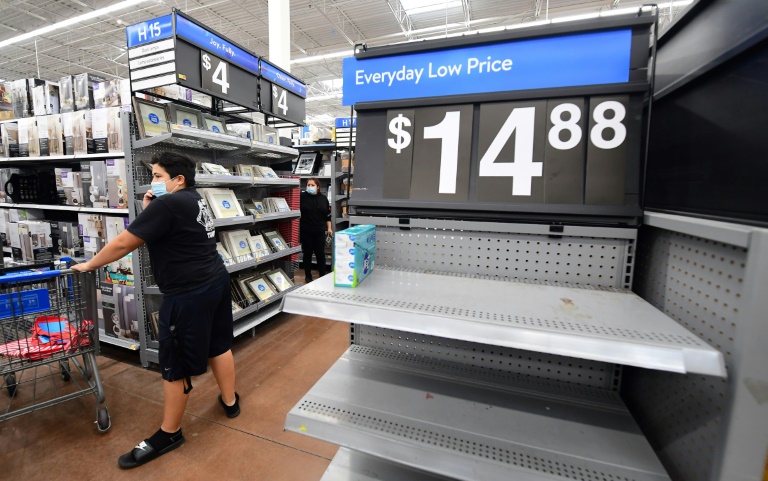Asian stocks were mixed Wednesday following a strong start in some markets, which took the lead from Wall Street where traders were cheered by brisk US retail sales data.
The US Federal Reserve’s tightening of monetary policy to contain surging inflation has sent jolts through global markets, deepening the apprehensions of investors already roiled by China’s Covid lockdowns and the Russian invasion of Ukraine.
But there was some good news out of the United States Tuesday, with data showing increased spending by Americans in April. Retail sales rose 0.9 percent — partly boosted by a rebound in auto purchases.
“The economy is slowing but the consumer still looks good and that means the economy is still positioned to avoid a recession,” said Edward Moya of OANDA.
Industrial production also rose in April — “another sign the economy isn’t falling apart just yet”, he added.
Wall Street closed with gains, with the tech-rich Nasdaq jumping nearly three percent.
Tokyo, Sydney and Singapore rose in Wednesday trade, thanks to the bounce in New York.
By mid-morning, however, Hong Kong and Shanghai dipped into negative territory after a positive start.
The US consumer data added to the boost from China earlier this week, where authorities said Shanghai — the economic engine of the world’s second-largest economy — will “gradually reopen” businesses.
Most of the city’s 25 million people were placed under lockdown for weeks as authorities battled a major Covid outbreak.
Millions were still confined to their homes Wednesday as confusion abounded over official statements about achieving zero Covid cases.
But just the indication of an easing was enough to boost markets, which have been concerned about the impact of China’s lockdowns on the global economy — especially supply chains.
– Fed inflation plans –
Central banks around the world are concerned about skyrocketing prices, and on Tuesday Fed chair Jerome Powell said it needs to see “clear” evidence that inflation is coming down before pulling back on efforts to cool the economy.
He acknowledged that it may be a “bumpy” ride that would inflict some pain.
His comments were in line with market expectations, said Stephen Innes of SPI Asset Management.
“Still, the debate is evolving among the active trading community from recessionary capitulation mode to one that is short and not a particularly deep recession,” he said.
“So while this is a tacit acceptance that the Fed is in catch-up mode and is prepared to constrain demand to get inflation down, they are unlikely to do it in a jackhammer fashion.”
– Key figures at around 0245 GMT –
Hong Kong – Hang Seng Index: DOWN 0.7 percent at 20,455.05
Shanghai – Composite: DOWN 0.4 percent at 3,081.19
Tokyo – Nikkei 225: UP 0.7 percent at 26,851.15 (break)
Brent North Sea crude: UP 0.5 percent at $112.50 per barrel
West Texas Intermediate: UP 1.1 percent at $113.50 per barrel
Euro/dollar: DOWN at $1.0533 from $1.0550 at 2030 GMT Tuesday
Pound/dollar: DOWN at $1.2476 from $1.2486
Euro/pound: DOWN at 84.43 pence from 84.47 pence
Dollar/yen: DOWN at 129.18 yen from 129.37 yen
New York – Dow: UP 1.3 percent at 32,654.59 (close)
London – FTSE 100: UP 0.7 percent at 7,518.35 (close)










